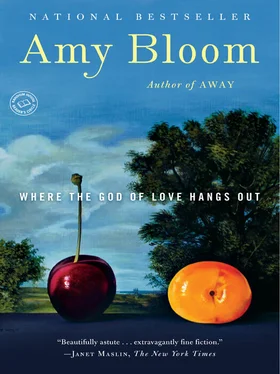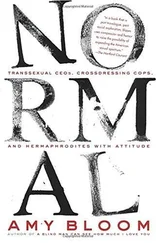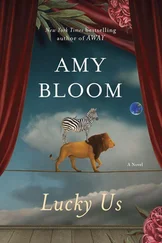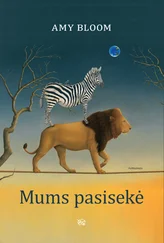“Let’s not go there. Anyway, definitely over with Paula. But I’m going to bring Ari every Thanksgiving.”
Everyone had liked Paula (even when she got so crabby, it was not with the new in-laws three thousand miles away), but no one, including Lionel, can look at the poor kid without wanting to run a thumb up his slack spine. Bringing Ari is no gift to anyone; he’s a burden to Jordan, an annoyance to little Corinne. Of course, Buster doesn’t mind; he’s the soft touch in the family, and Jewelle, inclined to love everything even faintly Buster, tries, but her whole beautiful frowning face signals that this is an inferior sort of child, one who does not appreciate friendly jokes or good cooking or the chance to ingratiate himself with his American family. It is to Ari’s credit, Lionel thinks, that instead of clinging forlornly, he has retreated into bitter, silent, superior Frenchness.
“Julia, are you listening?” Lionel asks. “On Friday I’ll fix the kitchen steps.”
Julia sets down a platter of cold chicken and sits on the floor to do Colorforms with Jordan. She puts a red square next to Jordy’s little green dots.
“It’s like talking to myself. It’s like I’m not even in the room.” Lionel pours himself a drink, walking over to his nephew. Jordan peels a blue triangle off the bottom of Lionel’s sneaker without looking up. Jordan takes after his father, and they both hate disturbances; Uncle Lionel can be a disturbance of the worst kind, the kind that might make Grandma Julia walk out of the room or put away the toys, slamming the cabinet door shut, knocking the hidden chocolates out of their boxes.
“Oh, we know you’re here,” Julia says. “We can tell because your size thirteens are splayed all over Jordy’s Colorforms. Squashing them.”
“They’re already flat, Julia,” Lionel says, and she laughs. Lionel makes her laugh.
Jordan moves his Colorforms board a safe distance from his uncle’s feet. Uncle Lionel is sharp, is what Jordan’s parents say. Sharp as a knife. Ari, not really Uncle Lionel’s son, not really Jordan’s cousin, is sharp, too, but he’s sharp mostly in French, so Jordan doesn’t even have to get into it with him. Ari has Tintin and Jordan has Spider-Man, and Jordan stretches out on the blue velvet couch and Ari gets just the blue-striped armchair, plus Jordan has his own room and Ari has to share with Uncle Lionel.
“You invite Ari to play with you,” Julia tells Jordan. “Take your sister with you.”
“He’s mean. And he only talks French, anyway. He’s—”
“Jordy, invite your cousin to play with you. He’s never been to America before, and you are the host.”
“I’m the host?” Jordan can see himself in his blue blazer with his feet up on the coffee table like Uncle Lionel, waving a fat cigar.
“You are.”
“All right. We’re gonna play outside, then.” Ari is not an outside person.
“That’s nice,” Lionel says.
“Nice enough,” Julia says. It is terrible to prefer one grandchild over another, but who would not prefer sweet Jordan or Princess Corinne to poor long-nosed Ari, slinking around the house like a marmoset.
Julia has not had both sons with her for Thanksgiving for more than twenty years. Until 1978 the Sampson family sat around a big bird with corn-bread stuffing, pralined sweet potatoes, and three kinds of deep-dish pie, and it has been easier since her husband and in-laws died to stay in with a bourbon and a bowl of pasta when one son couldn’t come home and the other didn’t, and not too hard, later, to come as a pitied favorite guest to Buster’s in-laws’, and sweet and very easy, during the five happy, private years with Peaches Figueroa, for the two of them to wear their pajamas and eat fettuccine al barese in honor of Julia’s Italian roots and in honor of Peaches, who had grown up with canned food and Thanksgiving from United Catholic Charities. With her whole extant family in the house now, sons and affectionate daughter-in-law (Jewelle must have had to promise her mother a hundred future Christmases to get away on Thanksgiving), grandson, granddaughter, and poor Ari, Lionel’s little ex — step marmoset, Julia can see that she has entered Official Grandmahood. Sweet or sour, spry or arthritic, she is now a stock character, as essential and unknown as the maid in a drawing-room comedy.
“Looks good. Ari likes chicken.” Lionel walks toward the sideboard.
Julia watches him sideways, his clever, darkly mournful eyes, the small blue circles of fatigue beneath them, the sparks of silver in his black curls. She does not say, How did we cripple you so? Don’t some people survive a bad mother and her early death? Couldn’t you have been the kind of man who overcomes terrible misfortune, even a truly calamitous error in judgment? It was just one night — not that that excuses anything, Julia thinks. She loves him like no one else; she remembers meeting him for the first time, wooing him for his father’s sake and loving him exuberantly, openhandedly, without any of the prickling maternal guilt or profound irritation she sometimes felt with Buster. Just one shameful, gold-rimmed night together, and it still runs through her like bad sap. She has no idea what runs through him.
There is a knot in his heart, Julia thinks, as she puts away the Colorforms, and nothing will loosen it. She sees a line of ex — daughters-in-law, short and tall, dark and fair, stretching from Paris to Massachusetts, throwing their wedding bands into the sea and waving regret fully in her direction.
Julia kisses Lionel firmly on the forehead, and he smiles. It would be nicer if his stepmother’s rare kisses and pats on the cheek did not feel so much like forgiveness, like Julia’s wish to convey that she does not blame him for being who he is. Lionel wonders whom exactly she does blame.
“Let’s talk later,” he says. It seems safe to assume that later will not happen.
Lionel watches his niece and his sister-in-law through the kitchen door. He likes Jewelle. He always has. Likes her for loving his little brother and shaking him up, and likes her more now that she has somehow shaped Buster into a grown man, easy in his young family and smoothly armored for the outside world. He likes her for always making him feel that what she finds attractive in her husband she finds attractive, too, in the older, slightly darker brother-in-law. And Lionel likes, can’t help being glad to see on his worst days, those spectacular breasts of hers, which, even as she has settled down into family life, no longer throwing plates in annoyance or driving to Mexico out of pique, she displays with the transparent pride of her youth.
“Looking good, Jewelle. Looking babe-a-licious, Miss Corinne.”
They both smile, and Jewelle shakes her head. Why do the bad ones always look so good? Buster is a handsome man, but Lionel is just the devil.
“Are you here to help or to bother us?”
“Helping. He’s helping me,” Corinne says. She likes Uncle Lionel. She likes his big white smile and the gold band of his cigar, which he always, always gives to her, and the way he butters her bread, covering the slice right to the crust with twice as much butter as her mother puts on.
“I could help,” Lionel says. There is an unopened bottle of Scotch under the sink, and he finds Julia’s handsome, square, heavy-bottomed glasses, the kind that make you glad you drink hard liquor.
Lionel rolls up his sleeves and chops apples and celery. After Corinne yawns twice and almost tips over into the pan of cooling corn bread, Jewelle carries her off to bed. When she comes back from arranging Floradora the Dog and Strawberry Mouse just so, and tucking the blankets tightly around Corinne’s feet, Lionel is gone, as Jewelle expected.
Читать дальше












